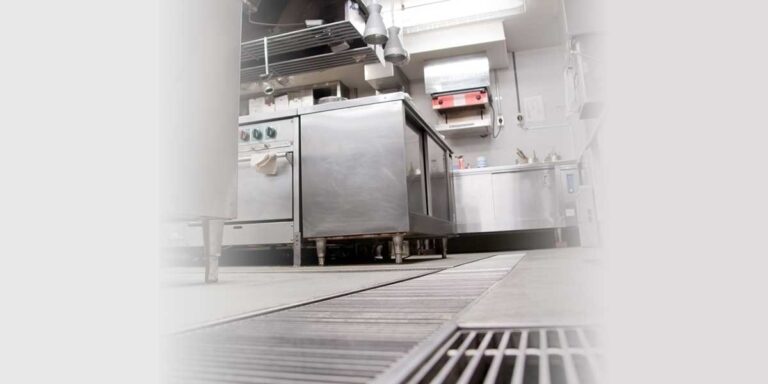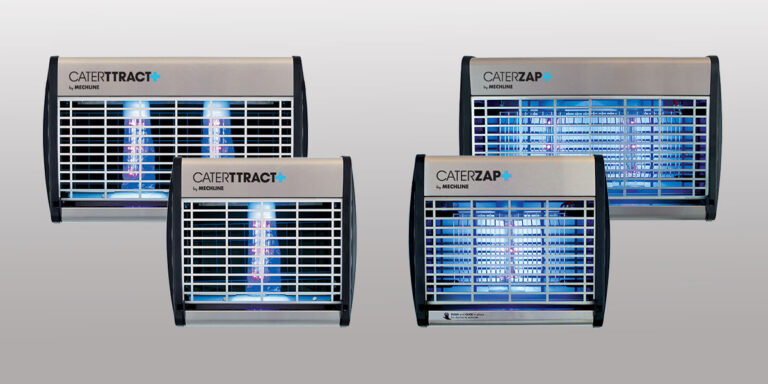New evidence has prompted sustainability consultancy Ricardo AEA to call for aerobic, on-site bio-digesters used in the commercial foodservice sector to be exempted from any maceration restrictions in UK devolved administrations.
The study – Multi Criteria Analysis of commercial food waste systems –determines that on site bio-digestion technologies are plainly dissimilar to maceration systems and should not be included in legislation which restricts the disposal of food waste to drain. They also represent an effective alternative for end of life, unusable food waste when off-site anaerobic digestion is neither practicable nor economically viable.
The findings are significant for a technology which has previously fallen victim to restrictions on the disposal of any material to drain, which have been aimed at maceration technologies. The sanction was first introduced in Scotland to prevent sewer blockages caused by the build up of fats and residues from macerators, and Northern Ireland has since followed suit.
Principal Consultant at Ricardo, Simon Gandy, explained: “Our Multi-Criteria Analysis study demonstrates that bio-digesters are sufficiently different from macerators to merit separate consideration in food waste legislation. We conclude that bio-digesters have a role to play among the range of technologies used to manage end of life, unusable food waste from commercial operations. As a result, we intend to submit evidence to the Welsh Government recommending that bio-digestion technologies be excluded from any proposed ban.”
To date, the research behind the bans has omitted bio-digesters, instead focusing exclusively on maceration systems, which simply homogenise food waste before sending it to drain. Conversely, bio-digesters, which have been classified with macerators for the purpose of the legislation, digest food waste, resulting only in a waste water which contains a significantly lower level of suspended solids, biological and chemical oxygen demands and fats, oils and greases (FOGs) than the output from a macerator.
Peter Galliford, Commercial Director at Mechline Ltd, welcomed the findings from the Ricardo report, saying that robust, independent research was necessary to clarify the situation. Mechline designed and manufactures the Waste-2-O bio-digestion system, which releases naturally occurring bacteria to release enzymes that break food waste down to form a microscopic liquid suspension.
Galliford added: “The waste water that goes to drain from a Waste-2-O system has been certified ‘100 per cent safe for sewer discharge’ by the Water Research Council, which carried out accreditation on the system – in contrast to the output from maceration, which simply homogenises food waste before it is sent to drain. The report clearly highlights that the two technologies and their outputs are very different. However, recent legislation targeting maceration has been applied to bio-digestion system by default.”
The Multi Criteria Analysis of Commercial Food Waste Systems concluded that there should be a distinction made between technologies which dispose of end of life food waste to sewer with physical treatment only and those that digest the food waste before disposal. Systems such as the Waste-2-O should be considered as complementary to separate collection to anaerobic digestion when this is not a practical or cost effective solution.
The MCA report and analysis shows that, whilst AD is, overall, the most environmentally preferable process, any scenario where practicality (and in some cases cost) is a significant concern, could be better suited to an on-site bio-digester (for example, in locations where there is no central AD capacity, where the storage of food waste for collection is not possible or presents a risk, or where there is restrictive and sensitive access or a high security issue).
Ricardo was asked to independently evaluate a range of food waste treatment technologies, comparing on-site systems including: on-site bio-digestion; maceration; dewatering with centralised facilities requiring off-site transport – namely in-vessel composting (IVC); anaerobic digestion (AD); energy from waste (EfW), and landfill. A life-cycle-assessment (LCA) across each technology was undertaken using the WRATE modelling tool. The financial and practical impacts of each food waste treatment route was also assessed, culminating in a Multi-Criteria Analysis (MCA) to help fully compare each food waste treatment option.
The innovative modelling created by Ricardo provided key results that are as follows:
- AD is the most environmentally preferred option, as it has the added benefit of generating renewable energy.
- On-site bio-digestion processes are the preferred option in terms of practicality.
- If cost from the waste producer point of view is the most important consideration, then macerators are the best option, as they are judged to have the lowest life cycle costs.
- In contrast, EfW, landfill, IVC and dewatering are not the preferred option under any weighting combination.
- If costs to water authorities for clearing sewers blocked by macerated, end of life food waste are also considered, maceration is not the preferred option under any weighting combination.
- The full report can be found at: http://ee.ricardo.com/cms/multi-criteria-analysis-of-commercial-food-waste-systems
Editor’s notes
Waste 2-O food waste bio-digester is a simple and scalable solution designed to help catering operations manage end of life unusable food waste easily and responsibly. A single Waste-2-O can handle 180kg of food waste over 24 hours and digest it onsite, resulting in no collection or landfill charges.
The equipment is designed and manufactured by Mechline Developments, based in Milton Keynes, UK, which has a long history of providing innovative solutions for the food services industry.
Waste 2-O is designed to reflect the values of the waste hierarchy, and to help food waste producers to treat their waste in a circular way. To accompany the technology, Mechline has produced a simple, step-by-step guide to food waste reduction which has helped clients to significantly reduce wastage. Mechline Food Waste Reduction Programme – http://www.waste2-O.com/index.php/food-waste-reduction-programme
Ricardo Energy & Environment is a leading sustainability consultancy that supports public and private sector organisations around the world to respond to environmental challenges and opportunities in resource efficiency and waste management. Its team of over 450 staff draws on an impressive heritage of over 40 years supporting governments and businesses to achieve their environmental and sustainable development ambitions. The consultancy is an operating division of Ricardo plc.
For more information, contact:
Kristian Roberts, Marketing Manager
Mechline Developments
15 Carters Lane
Milton Keynes
MK11 3ER
01908 261511







